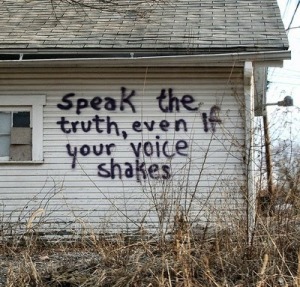Tags
boardroom, decision-making, Murder in the Cathedral, poetry, policy making, speak truth to power, TS Eliot
Dear Biddy,
I wonder what you would have made of twitter? A quick short messaging exchange that has created its own universe. The number of followers is the currency of the twittersphere, where unlikely celebrities are treasured for their pearls of wisdom and trolls can be found lurking with intent under the cover of either suspicious or overt handles.
Next week I am going to be guest curator for @Wethehumanities and have decided to blend my love of poetry with my professional life in strategic thinking and decision-making. I hope it will be a journey of discover of bards in the boardroom. It has certainly got me thinking about the words you might have used to coax decisions from those in authority. Perhaps a song or a curse held a lyrical line to make sense of the scene and circumstance in which your visitors found themselves in? The great Irish lilt a comfort to a weary travellers ear.
(Back in the twitterspehere, I introduced myself to the twitter community formed around @wethehumanities and the entry on their blog is here.)
My personal favourite line from poetry to guide my decision-making comes from TS Eliot’s Murder in the Cathedral:
The last temptation is the greatest treason, to do the right deed for the wrong reason
Many a time I have used this line as my examen and to check in if the dark side was finding its way out of the cracks into the light. It often is the hardest question of all to answer. With clever intellectual gymnastics, it is possible to find an answer to satisfy the soul and the board room and succumb to the temptation. Beckett’s temptation was for martyrdom and he came to that place in peace. I believe to be at peace with a decision is a sign of alignment between the heart and the head. Having worked in political settings and getting my grounding for that in the church Murder in the Cathedral served as a primer and provided many lessons of church and state. I am eternally grateful for the introduction to this work in my high school years.
Both poetry and policy making distil an idea and amplify the essence to birth new purpose or insight. Both have the power to bring imagination to public view and cut through and generate new outcomes. Making sense of what was invisible, whether it be big data or a metaphor, poetry and policy-making have the power to stimulate and challenge. The juxtaposition of light and dark in this quote below poses the question: is policy making the shadow of poetry?
For poetry, the focus is on the transformation of the aesthetic experience through imagination, with all that implies for the emergence of novel, subtle and complex forms of understanding and coherence. In the world of policy-making, it is the transformation of power relationships and the use of collective energy, namely the emergence of novel forms of social coherence in practice. In this sense policy-making may be understood as the shadow of poetry.
 Being able to listen to the conversations and hear the stories that get told in the process of decision-making, is often an invitation to hear an epic journey, a quest, a legend of dragon-slayers and unrequited love.
Being able to listen to the conversations and hear the stories that get told in the process of decision-making, is often an invitation to hear an epic journey, a quest, a legend of dragon-slayers and unrequited love.
Hearing these stories and being able to synthesise and draw on the great stories that lie in deep time, mirrored in the meta narrative of what it means to be human, is at the heart of my pilgrimage.
And while not a piece of poetry, a wonderful maxim that wells in my throat some days from the Society of Friends: Speak your truth to power holds the space for poetry and policy making to come together.

Reblogged this on Dangerous Meredith and commented:
A very interesting approach to thinking about policy making is revealed here. I am heartened to see it. Why should not the arts and humanities influence and inform our approaches to the complexities of politics, bureaucracy, business and governance? Poetry (and other creative forms) allows us access to subtle, rich, powerful and nuanced ways of thinking and feeling, especially about complex matters.
Thanks for your encouragement and feedback – it is appreciated!